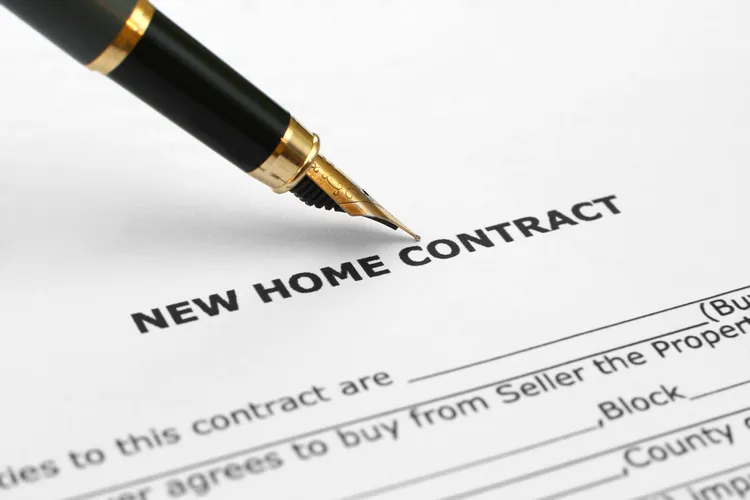
If you put in an offer, sign a contract, or buy a house and then life happens, what do you do?
Now, no matter what you’re doing things can always happen that derail your plans, even when you’re buying a house.
So, read on to find out what happens if you make an offer on a house or your offer gets accepted and then you change your mind.
So, whether you’re attempting to purchase a house, or you are already under contract, sometimes things happen where you need to back out. Now, If you do it prior to all parties signing the contract, there is a good chance that you can walk away and not lose your earnest money deposit. However, it might not be so cut and dry if you're past that point. But if you have contingencies in your agreement and don’t go past the end date, it could still turn out all right.
When you and/or your realtor are filling out your LOI (letter of intent) or purchase agreement, you’re going to be putting in some contingency clauses.
However, we’ll talk more about that in the next section.
Also, more than likely you’re going to propose giving some amount of earnest money.
This lets the seller know that you’re a serious buyer and not just a tire kicker…lol
Now, the earnest money is usually held by a title company of the sellers choosing, and once your offer is accepted it will be applied to the purchase price.
So, If you’ve made an offer but it hasn’t been accepted yet, most of the time you can cancel it without any repercussions and still get your earnest money back.
However, if you wait until it goes under contract, there are times that this will not be the case.

So, changing your mind prior to your offer being accepted is a completely different animal than backing out once the contract is signed by both parties.
This is where those contingency clauses I just mentioned come in:
A home inspection contingency clause allows you to ensure that there are no major or even minor problems with the house.
Problems that can turn out to be very expensive and might even make it where you’re not comfortable buying the house, or at least not comfortable buying it until they’re fixed.
This process typically works by hiring a licensed home inspector to go over the foundation, structure, and systems of the subject house.
Now, just a little caveat, all home inspectors are not created equal.
Make sure you know the different fees they charge & what is included with those fees and get references or do reviews on them.
So, to get back to it, the average home inspection period is about 7 to 10 days.
You need to make sure to schedule the home inspector, so they’re able to do their job and get you the report at least a couple of days before the inspection period expires.
That way if something is wrong to the point that it’s a deal breaker, you have time to cancel the contract or at least renegotiate.
A clean or clear title is a way to protect yourself from purchasing a property where the title may be encumbered with leans, such as tax liens, or the person who is supposed to be the owner may not actually be.
You definitely wouldn’t want to buy a house and then have someone else show up and challenge you for partial or full ownership rights.
If you have a clear title contingency and the seller can’t show a clear title, you don’t have to buy the house.
Basically, a financing clause just says that if the buyer can’t obtain the financing they don’t have to go thru with the purchase.
The financing contingency protects you in case you’re unable to get a mortgage at the conditions specified in the contract.
These conditions can be:
The type, be it FHA, VA, USDA, or conventional.
The term or number of years of the loan, whether it be 15, 20, or 30 years.
The time frame to get the financing, which is usually about 30 days from the date the offer is accepted.
Interest rate, which should be something within reason.
This clause just says that if the home doesn’t appraise for the purchase price or above you can choose not to go through with the deal.
Not to mention, if you’re getting a mortgage, your lender is probably going to want to make sure it appraises as well.
Although, if the seller is willing to lower the price because of this, you might want to consider it.
Since, after all, you were going to pay more before the appraisal came in.
So, you could look at it as a lucky break.

So, If you do decide that you need to walk away from purchasing a house, you should start by contacting the seller or sellers.
Now, If you want to contact them by phone or email first, that’s ok.
However, I would follow it up with a formal letter, and in it, you should describe in detail why you need to cancel the contract.
Since sellers are people too and sometimes they can be pretty understanding!
Now, provided you’re using a realtor, they should be able to help you with this.
Just keep in mind that if you’re past the offer and contingencies stages, there is a good chance that you won’t get your earnest money back.
Although, you may be able to convince them to split it with you.
Now on a positive note, it’s highly unlikely that you would ever be forced to buy a house if you really didn’t want to.
There are times when not going through with purchasing a house is your best bet. But what do you do if you’ve made an offer or worse yet, the sellers have already accepted your offer and signed the contract? Well, If it’s still in the offer phase, more than likely you can just let all the parties involved know that you need to back out. However, if it’s in the contract phase, you might have to do some more maneuvering if you want to keep your earnest money deposit. The safest way is to make sure you always have contingencies in your purchase agreement. Such as an appraisal contingency or a financing contingency. Not to mention, sometimes you can negotiate to split the earnest money with the seller or sellers and work it out that way as well. One last thing though, if you put in an offer on a house or other type of property, you should actually be intending to close on that property, unless something really does come up to derail it. Otherwise, It’s not fair to the seller.